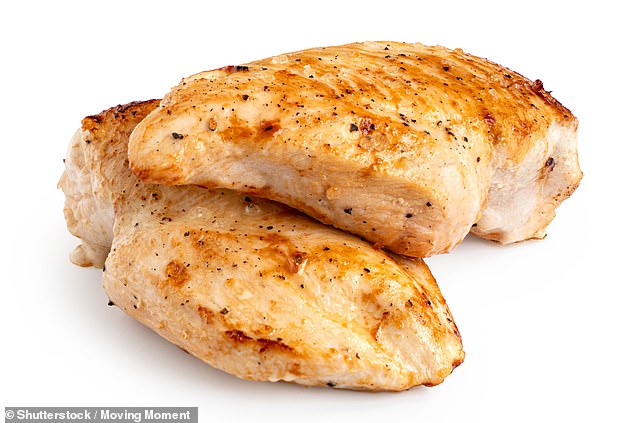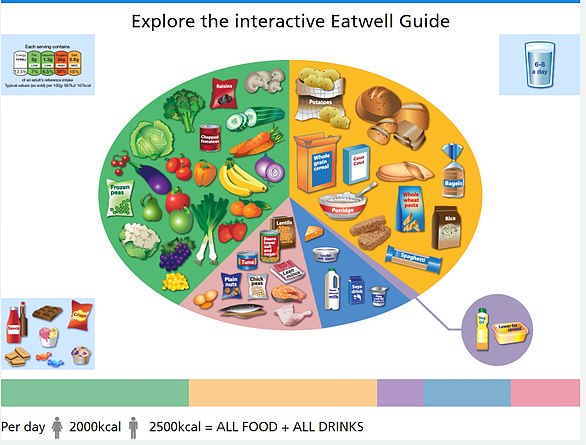While many of us try out best to limit our meat consumption, the temptation of a juicy burger or a succulent rack of ribs can be too much to resist.
Now, a study reveals just how little meat you should be consuming if you truly want to have a sustainable diet.
According to experts from the Technical University of Denmark, you can only eat 255g of chicken or pork a week without harming the planet.
That’s the equivalent of just two chicken breasts or one pork chop across the entire week.
It’s also bad news for fans of beef, veal, lamb or venison.
Red meat is off the cards entirely if you want to stick within planetary boundaries, the experts say.
‘Our calculations show that even moderate amounts of red meat in one’s diet are incompatible with what the planet can regenerate of resources based on the environmental factors we looked at in the study,’ said Caroline H. Gebara, lead author of the study.
‘However, there are many other diets—including ones with meat—that are both healthy and sustainable.’

According to experts from the Technical University of Denmark, you can only eat 255g of chicken or pork a week without harming the planet. That’s the equivalent of just two chicken breasts or one pork chop across the entire week (stock image)
In the study, the team set out to understand exactly how much meat you can include in your diet without harming the planet.
‘Most people now realize that we should eat less meat for both environmental and health reasons,’ saiid Ms Gebara.
‘But it’s hard to relate to how much “less” is and whether it really makes a difference in the big picture.’
The team’s calculations took into account a range of environmental factors.
This inculded carbon dioxide (CO2) emissions, the consumption of water, and land use.
They also looked at the environmental and health benefits of more than 100,000 variations of 11 popular diets.
Unfortunately for meat-lovers, their calculations show that a diet with any amount of red meat exceeds planetary limits.
However, they say that a small amount of poultry or pork is OK.

Unfortunately for meat-lovers, their calculations show that a diet with any amount of red meat exceeds planetary limits
‘Based on the planetary boundaries, we have calculated a concrete figure—255 grams of poultry or pork per week—which you can actually visualize and consider when you are standing in the supermarket,’ Ms Gebara said.
At most UK supermarkets, a pack of two chicken breasts typically weighs around 300g, which is slightly over the limit set out by the experts.
Meanwhile, a pack of two pork chops usually weighs around 500g, which means you can treat yourself to just over one chop per week.
Pescatarians, vegetarians, and vegans, on the other hand, can indulge in most of their favourite meals guilt-free, according to the calculations.
‘Our calculations show that it’s possible to eat cheese if that is important to you, while at the same time having a healthy and climate-friendly diet,’ Ms Gebara added.
‘The same is true for eggs, fish and white meat, but the premise is of course that the rest of your diet is then relatively healthy and sustainable. But it doesn’t have to be either-or.’
The news comes shortly after scientists from the Physicians Committee for Responsible Medicine revealed the exact amount of money you could save by going vegan.
According to their calculations, changing to a low-fat, vegan diet could save you £1.44 ($1.80) per day.
Over the course of the year, that’s an impressive saving of £525 ($657).













